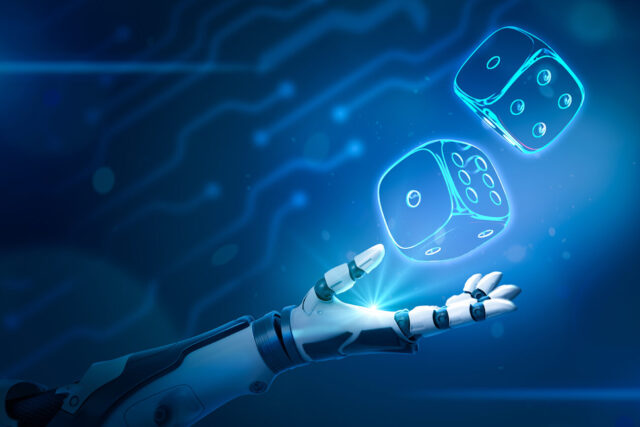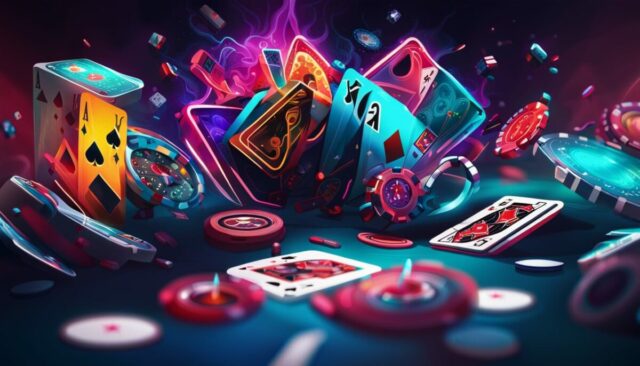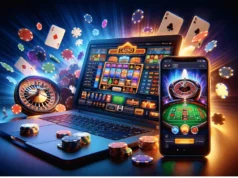
Artificial Intelligence is no longer confined to science fiction or academia. In poker, the introduction of AI has signaled a shift in strategies, player behaviors, and the game’s very nature. The impact is real and increasingly noticeable, influencing how new and experienced players approach poker.
AI and Decision-making in Poker
In the poker community, there’s ongoing debate on the role of Artificial Intelligence (AI). While purists argue that the human element remains irreplaceable, there’s no denying the fact that AI has introduced shifts in decision-making strategies.
Software that can simulate millions of possible game outcomes within seconds offers new insights into probabilistic thinking, as well as risk and reward assessments. Learning from such software can equip you with a stronger game plan when you play poker.
Statistical Precision

One of the first things AI brings to the table is an enhanced focus on statistics. Previously, players had to rely on their intuitive understanding of probabilities or keep tabs using mental calculations. AI can not only compute these probabilities but also apply them in real time during a game. This advancement serves as an instructive tool for players interested in fine-tuning their statistical evaluations.
Emotional Quotient Vs. AI
For many years, reading the opponent’s emotions and tells were considered indispensable poker skills. Yet, AI, lacking any emotional bias, relies solely on quantitative data to make its decisions. This approach seems to suggest that emotional reads may not be as significant as previously thought. Although it’s too early to conclude that emotional intelligence has lost its place in poker, the AI impact certainly puts its importance into perspective.
Game Theory and AI
Game theory, a study involving mathematical models of strategic interaction, has always been a part of advanced poker. AI algorithms now have the capacity to execute complex game theory optimal (GTO) strategies that are difficult for humans to calculate during real-time play. Observing these AI-driven strategies opens up new pathways for understanding the applications of game theory in poker.
New Training Regimens
AI doesn’t just serve as an opponent; it’s also an excellent training tool. Platforms that offer AI training scenarios can simulate both basic and complex game settings. This is a valuable asset for both newcomers and professionals looking to simulate specific game scenarios that they want to practice.
Ethical Considerations

AI’s influence isn’t entirely devoid of controversies. There are concerns about fairness, especially when an AI tool is used in a real-money game without the knowledge of the human players involved. Issues related to the integrity of the game arise, putting the spotlight on the ethical considerations of using AI in public games.
Automation and Data Analysis
Another point to consider is the role of AI in automating the data analysis process. Traditional methods of analyzing past games, such as manual reviews of hand histories, have been replaced by AI algorithms that can sift through enormous volumes of data in a fraction of the time.
Players can benefit from AI-generated reports that offer breakdowns of various elements like betting patterns, fold percentages, and optimal play strategies. This accelerated form of analysis can assist players in identifying weaknesses and refining their own approaches much faster than before.
Impact on Online Poker Platforms
Online poker platforms are also undergoing transformations due to the capabilities of AI. From enhanced security measures that identify and prevent cheating to algorithms that ensure fair play and random card distribution, AI is making its presence felt.
Additionally, AI can be used to create more balanced matchmaking systems, connecting players with opponents of similar skill levels for a more enjoyable game. While the technology primarily serves to improve the backend operations, these changes result in a better overall gaming environment for players.
Complexity of Learning from AI
While AI provides valuable insights, interpreting and applying these lessons can be intricate. For example, understanding why an AI chose a specific line of play in a given situation can be complex due to the multilayered decision-making algorithms at work.
Players must invest time and effort to decode the logic behind AI choices, as simplifying them into bite-sized lessons can lead to a loss of critical context. Despite its utility as a learning tool, players need to approach AI-generated strategies with critical thinking.
Economic Implications

AI’s impact on poker isn’t confined to just game strategy and ethics; it has economic implications as well. For instance, if AI systems become too effective, they could discourage new players from taking up the game, affecting the inflow of money into both online and offline poker ecosystems.
On the other hand, AI could also attract a different audience interested in the technological aspects of the game, potentially leading to a new revenue stream for the industry.
Shaping Future Strategies
By observing AI algorithms, players gain insights that could be integrated into their strategies. Human players have started to adopt methods like “randomizing” their play—a concept picked up from AI’s unpredictability—to mask their own patterns.
Limits of AI in Poker
Despite the numerous ways AI has influenced poker, it’s essential to acknowledge its limitations. For instance, multi-player games with more than two players significantly complicate the algorithms, limiting AI’s effectiveness. Furthermore, while AI can analyze existing data, it cannot predict human innovation in strategy.
Conclusion
Artificial intelligence has not merely adapted to the game of poker; it has initiated a seismic shift in the ways the game is studied and played. As AI continues to evolve, the poker community, from novices to experts, should anticipate and prepare for even more subtle styles of play, led by machine learning insights.







